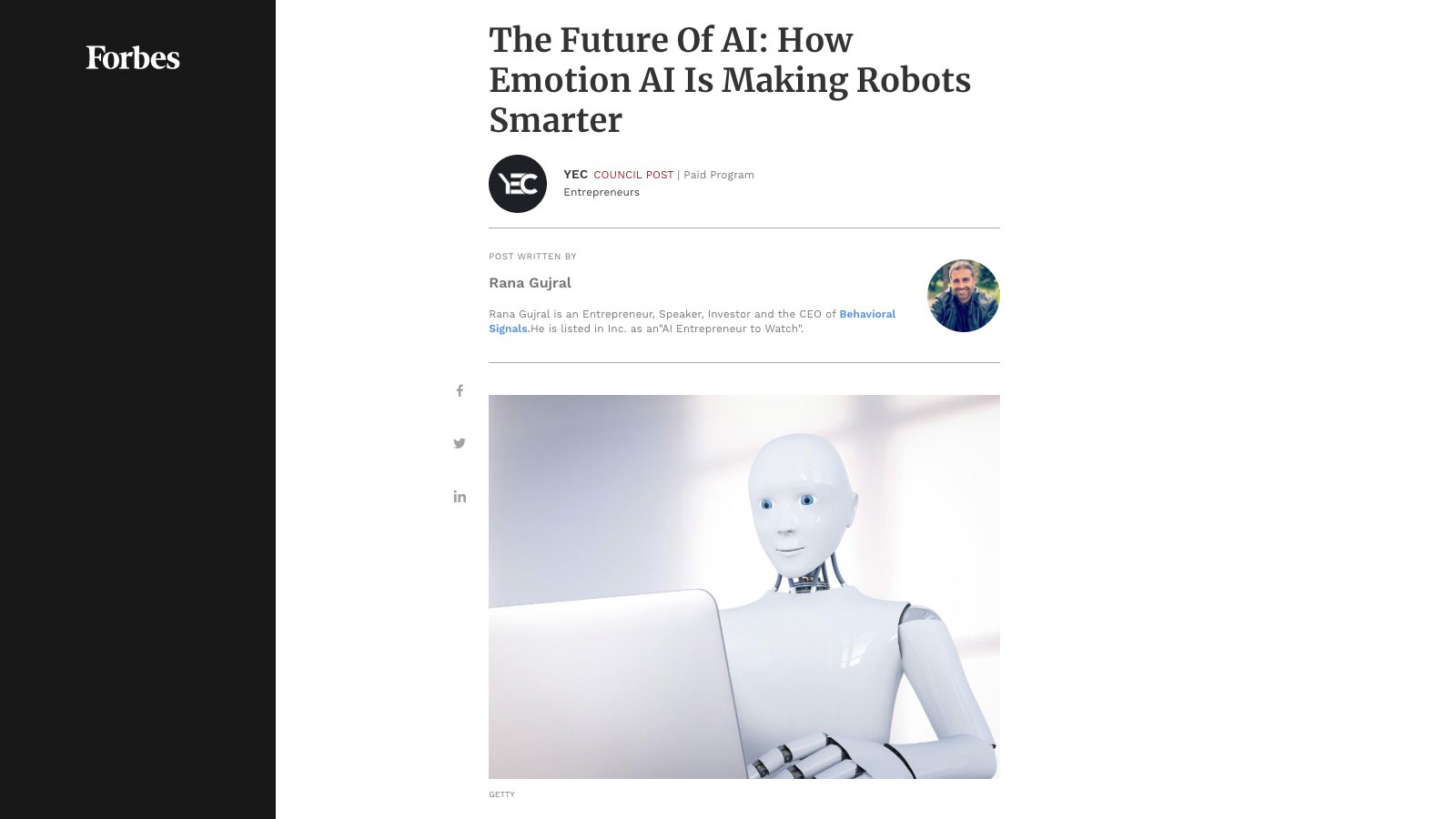
Emotion AI Making Robots Smarter
FORBES writes about a future where robots interacting with humans will be smarter making our lives safer, happier, healthier. A future that is closer than ever thanks to Emotion AI.
A Safer World
The use of emotionally intelligent artificial intelligence is nearly endless and is applicable in most industries. Self-driving cars alerting drivers, applications detecting health issues or helping prevent violence, medical robots who assist doctors and patients are only some paradigms of how this technology can work towards a better and safer life.
Misconceptions
The article leans into the misconceptions and ethical issues Emotion AI raises. A significant dilemma is whether machines should be emotionally intelligent and what that means morally. The writer, Rana Gujral, asks “Wouldn’t we want to interact with emotionally aware and intelligent machine entities that are able to make ethically sound decisions through learned behavior? Highlight that this helps to create a harmonious relationship between AI/ML/NLP while recognizing that we are giving programmers/developers the great responsibility to ethically train and program such machines to ensure that they are constantly learning from an unbiased perspective”.
Challenges of Emotion AI
Training AI models is not cheap “The financial expense of developing, training, and implementing AI is huge. To train AI to perform all the tasks we would hope for is, quite simply, cost-prohibitive at this point, while the training itself can also be difficult. AI doesn’t learn the way people do, so programmers and developers must think broadly when training AI”.
But, Emotion AI is here and promises exciting new ways to improve our lives!
Read the full article The Future Of AI: How Emotion AI Is Making Robots Smarter


